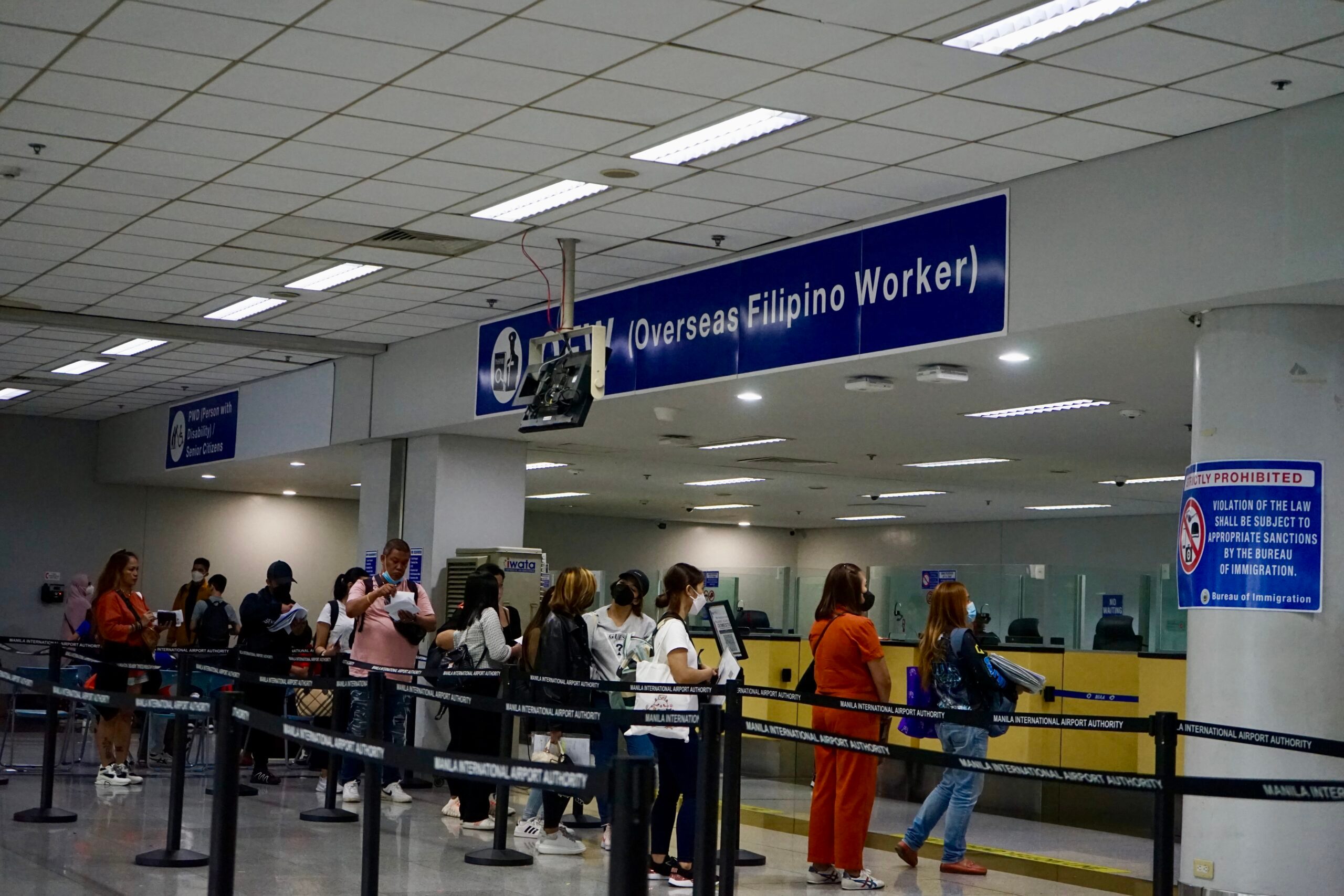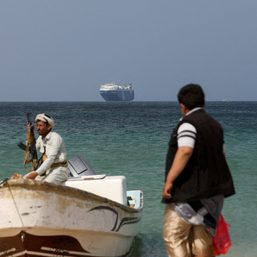SUMMARY
This is AI generated summarization, which may have errors. For context, always refer to the full article.

MANILA, Philippines – At least 815 Filipino workers have been displaced by Kuwait’s decision to suspend the issuance of new entry visas for Filipinos, the the Department of Migrant Workers (DMW) said.
Migrant Workers Secretary Susan Ople said that the 815 workers were waiting for their flight schedule to work in Kuwait. The DMW said 515 of them are experienced domestic workers, while the remaining 300 include waiters and waitresses, mall vendors, sales associates, and nurses.
DMW Undersecretary Hans Cacdac said in a news briefing on Friday, May 19, that the DMW will provide financial, employment, and livelihood assistance to displaced workers who had been issued overseas employment certificates (OECs) prior to the Kuwait ban that took effect on May 10.
For financial assistance, each worker will receive a one-time P30,000 cash aid from the government, in coordination with their respective recruitment agencies.
Aside from the cash aid, the department, also in cooperation with the workers’ respective recruiters, will help them find other job opportunities. Cacdac said that there’s an ongoing profiling process which aims to find the workers’ skillset, job preferences, and willingness to take up different job opportunities.
The agency is facilitating skill set-matching and coordination with prospective new employers in possible new host countries.
For those who want to venture into local business instead of going abroad, the DMW has livelihood assistance available. Potential livelihood packages will come in cooperation with the Overseas Workers Welfare Association (OWWA), the National Integration Center for OFWs, other government agencies, and the private sector.
“Essentially, pantawid sa expenses nila plus other possible needs nila. But, also tinambalan ito ng employment kasi, di ba, mas long-lasting ang employment, mas sustainable for the worker,” Cacdac explained, as these forms of assistance will help affected workers “stem the tide” brought by the cancellation of their employment in Kuwait.
(Essentially, it covers their expenses plus their other possible needs. But, we partnered this with employment, because it is more long-lasting, more sustainable for the worker.)
Aside from the 815 workers with OECs, Ople also reported that there are 2,849 job orders in Kuwait that were approved from January to April. She said these are Filipino workers that are not yet scheduled to fly to Kuwait, but are considered “active applicants.” The processing of the contracts of the job orders are at various stages.
Cacdac said they will also look for ways to help these workers.
In February, the Philippines halted the deployment of first-time Filipino domestic workers bound for Kuwait following the brutal killing of Jullebee Ranara, who was allegedly killed by her employer’s son.
The Philippines still allowed the deployment of new skilled workers and domestic workers who already had contracts. But with Kuwait’s recent move, all non-resident Filipinos may not enter.
The Department of Foreign Affairs (DFA) earlier said that Kuwait may have imposed the blanket ban to apply “diplomatic pressure” to lift the ban on new domestic workers. But some non-negotiables for the lifting of the partial ban include justice for Ranara, as well as the continued operation of shelters for runaway Filipino workers.
A Philippine delegation composed of the DFA, DMW, and OWWA engaged in two-day bilateral talks with the Kuwait government on May 16 to 17.
“On issues related to services being rendered to our migrant workers, the delegation explained that all actions taken by the Philippine embassy and the Philippine government are solely to ensure the safety and welfare of our own nationals. Providing protection to a country’s citizens abroad is a well-established duty of consular offices under international law and conventions,” the agencies said in a statement on Thursday, May 18.
The Philippine delegation had also expressed its “full respect for Kuwaiti laws and profound appreciation for the hospitality of its government” to the more than 200,000 Filipino workers who live and work in Kuwait.
“Meanwhile, the DFA and DMW wish to assure our migrant workers in Kuwait as well as their families of the government’s full support and assistance,” they said.
The statement did not make mention of the possible lifting of the ban from either the Kuwait or Philippine side. – Rappler.com
Add a comment
How does this make you feel?










There are no comments yet. Add your comment to start the conversation.